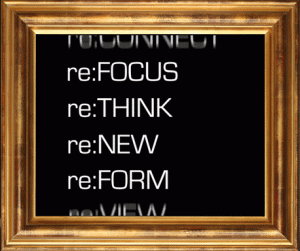 There was once a time when I’d get frustrated about the lack of opportunities to travel for conferences or trainings. I used to think about “what could have been” if I had only continued my education and pursued an advanced degree. Frankly, I decided to make a personal choice to stop complaining about the opportunities I don’t have and start thinking about how I could develop my own professional development. I stopped depending on others to provide me these opportunities. I welcome them when they are offered, but I no longer wait for when those opportunities happen to come by. (continue reading…)
There was once a time when I’d get frustrated about the lack of opportunities to travel for conferences or trainings. I used to think about “what could have been” if I had only continued my education and pursued an advanced degree. Frankly, I decided to make a personal choice to stop complaining about the opportunities I don’t have and start thinking about how I could develop my own professional development. I stopped depending on others to provide me these opportunities. I welcome them when they are offered, but I no longer wait for when those opportunities happen to come by. (continue reading…)
Uncategorized
Professional Development – A Personal Choice and Commitment
What’s The Point?
I was in a meeting once and in in the midst of several conversations about a topic, a colleague respectfully asked “What’s the point?”. That question re-oriented the conversations to the purpose of the meeting. Sometimes, I think we lose sight of what we’re trying to accomplish in the first place because we are too busy focusing on the details or get distracted with the tools that we use.
One topic that could benefit from someone asking “what’s the point?” is the use of technology in education. Introducing technology in the classroom because it seems everyone’s doing it or it seems exciting is probably not the wisest decision to make. What makes sense is to use technology to enhance or support the teaching/learning process.
In our work, losing sight of our role and how we contribute towards the goals of companies/institutions can lead to siloed thinking or distorted view that other folks should serve us, instead of providing service to others. Sometimes, we need to be reminded of “what’s the point?” — why we do what we do? Effective leaders can provide context of why we do what we do and how we fit into the larger picture
Next time you get frustrated or feeling unmotivated at your job, maybe you should gently ask yourself “what’s the point of what I do? What is it that I contribute?” I hope in asking these question, you do find some good reasons as to why you do what you do.
Reframing Our Professional Purpose
 About a year ago, I wanted to attend a student affairs technology conference that did not necessarily focus on IT (application development, networking, security, enterprise software) but on social media, engaging students with technology and digital identity. I shared my hope to attend with a colleague in IT, and the response was, “that’s not what we do. That’s what the other departments do.” I would say, given my job description and what I would consider the role of traditional IT, my colleague is correct. Traditional IT is seen as a utility, and we implement/support systems. We enable student affairs departments, as well as the campus, to do their business functions.
About a year ago, I wanted to attend a student affairs technology conference that did not necessarily focus on IT (application development, networking, security, enterprise software) but on social media, engaging students with technology and digital identity. I shared my hope to attend with a colleague in IT, and the response was, “that’s not what we do. That’s what the other departments do.” I would say, given my job description and what I would consider the role of traditional IT, my colleague is correct. Traditional IT is seen as a utility, and we implement/support systems. We enable student affairs departments, as well as the campus, to do their business functions.
I view my position in student affairs and IT is a bit different. I see myself as a student affairs professional serving students through my work in IT. I see myself as a university community member, not just an IT employee. Because I see myself as a student affairs professional, I also view myself as an educator, a student mentor, advisor, and advocate for their success, and I’ve demonstrated these through volunteer positions outside my formal role in IT (First Year Experience teaching assistant, organizational advisor, applications reader). Given this perspective, I saw the conference as an opportunity to learn about technology-related topics and understand student affairs practitioners’ perspectives. It was an opportunity for me to understand the purpose of why we, in student affairs IT, exist.
I also wrote this blog post about my view of the role student affairs IT should play. As I mentioned earlier, IT is traditionally seen as a utility provider. I want to think that given the critical role technology plays in student affairs and the lives of our students and other customers, we need to be viewed both as a utility, providing the required infrastructure (network, servers, hardware, software) as well as partners in defining how we can use technology to transform how we do business in student affairs and on campus.
We have formal job titles with given job descriptions, and we get paid to perform these responsibilities. I think it’s important to re-frame our purpose beyond what is listed as job responsibilities on our job descriptions. Our organizations, as they exist, probably need some examination to determine if we are current with the times. We must go beyond the boundaries of what we see when we come to work every day. We are a part of a more extensive system.
Ultimately, we need to ask more critical questions beyond what we do. We must ask, “what is our ultimate purpose?” and “why do our roles exist”?
image credit: http://reframemedia.com/about
Routine for Work Week Preparation & Review
My work week starts late Sunday night. This is the time when I compile weekly status reports from my managers and when I prepare my own status reports to my supervisor. Preparing the reports may sound tedious and bureaucratic but I’ve come to value the time I spend working on them. Why? Besides the obvious intent of communicating what’s going on, I’ve come to look at this time doing this seemingly menial task as a time for reflection and getting some sense of what’s going on not only with projects but also with my staff. This practice has become beneficial to me in that when I walk in to my office Monday morning, I have a better expectation of what’s to come ahead the next few days. It also sets me in the mindset of seeing the big picture instead of reacting to issues that may come my way in reactive mode.
I end my work week setting some time on Friday afternoons (or when my work week ends) reviewing how the week went and taking some notes on what I need to do for the next week. I value my weekend spending time with my wife or with my hobbies. I’ve found this practice of end-of-week review very valuable in keeping my mind away from work. Admittedly, even during weekends and while at the golf course, work-related ideas come to my mind, but I don’t spend too much time thinking about them.
Do you spend some time preparing and reviewing your work week?
Lessons Learned as a “Change Agent”
I have experienced two major technology shifts in my career: the web in the late 1990’s and social media, cloud and mobile in the last few years. In both periods, I have been fortunate to have been given opportunities in my organization to be an early adopter/implementer of these technologies. Along the way, I learned some lessons I carry along with me and I share with my team in how to have some success when it comes to leading change.
- You need champions/advocates and adopters. You need allies.
- Distribute the work AND accolades.
- Recognition should be the byproduct, not the goal.
- Don’t ignore detractors, but don’t let them stop you either.
- Turn your detractors into your allies and you may have your strongest advocates.
- Learn to know when to ask for forgiveness and/or permission.
- You’ll need a plan, but don’t let the plan stifle progress.
- Better to make mistake moving forward than stagnate and do nothing.
- Embrace ambiguity.
- Know that you will make mistakes from time to time. Don’t dwell on them.
- Learn. Always Learn.
- Politics do matter.
- Develop thick skin. You will be criticized.
- Speak in the language of those you’re trying to convince.
- Ask why would folks want to invest time and resources.
- “No” is not permanent.
- Have fun. Hard to sustain energy for a long time if you’re not having fun.
- Anticipate tomorrow’s needs and build solutions for them.
- Look outside your organization/industry to gain perspective, inspirations.
- Dream.
- It’s more than technology. It’s about people and culture.
In your experience, what else would you add?